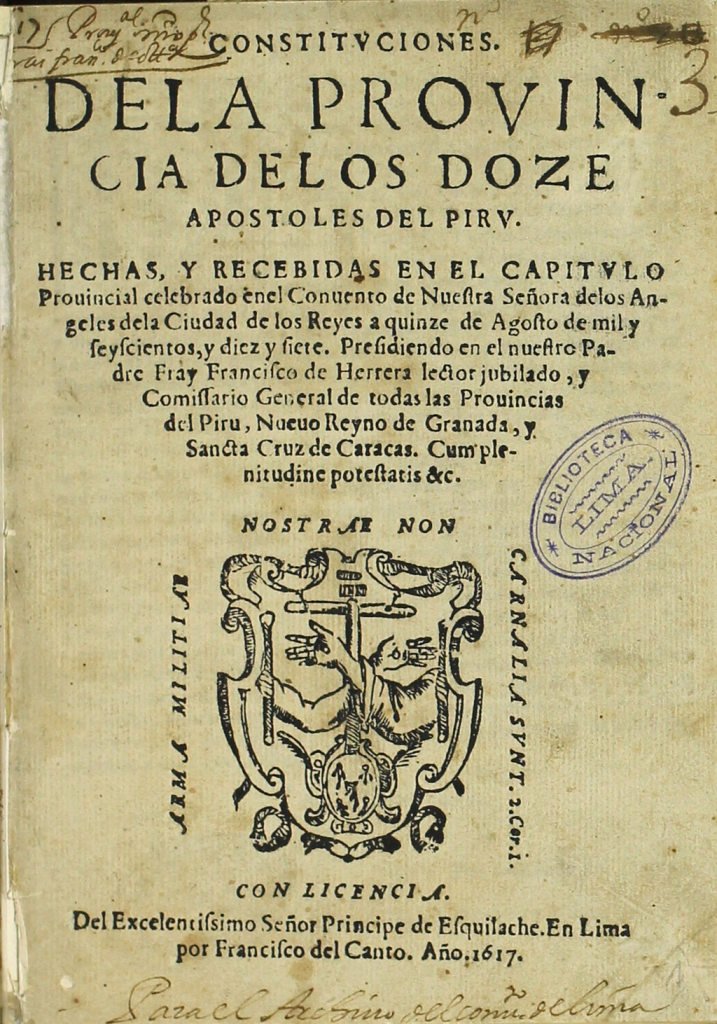
Libraries
Libraries
Constituciones de la Provincia de los Doce Apóstoles del Perú
The Lima Franciscan Fray Diego de Córdova y Salinas (1957) informs us in his famous Chronicle that the provincial chapter convened for the founding of the Province of the Twelve Apostles of Peru was celebrated in the year 1553, a fact that is corroborated even with some anticipation , since, in a Royal Decree of 1550, the king’s order is expressed to the Peruvian provincial to send missionaries to evangelize the Indians. Likewise, in another letter written on September 4, 1551, a similar request is requested from the provincial of the Peru. In any case, it is most likely that the Province of the Twelve Apostles of Peru has been considered as an entity not yet confirmed before 1550, whose official confirmation of creation reached Peru between 1552 and 1553, with which there is no contradiction. with the presence and continuity of the first provincial chapter celebrated in the viceroyalty of Peru.
The importance of this document, in addition to being an incunabula printed by Francisco del Canto in 1617, revolves around the testimony of the presence of one of the main religious orders settled in Peru from the very beginning of the viceroyalty. The organization of the Franciscans in Peru had important milestones since the founding of the province. The provincial chapter of Lima in 1607 was another of these moments, since it is the moment in which the most important positions are held by friars of Creole origin, an internal political question that is sharpened from historiography is called the question of alternation, that is, the alternation in the positions between peninsular Spaniards and Peruvian Creoles. Indeed, this document is contextualized in the midst of this dispute and it is very likely that the explanation of its prompt drafting and printing with respect to the previous constitutions (1607) is due to the need to equate the Creole presence in the ranks of the seraphic institution.
Jean Christian Egoavil
Proyecto Estudios Indianos

